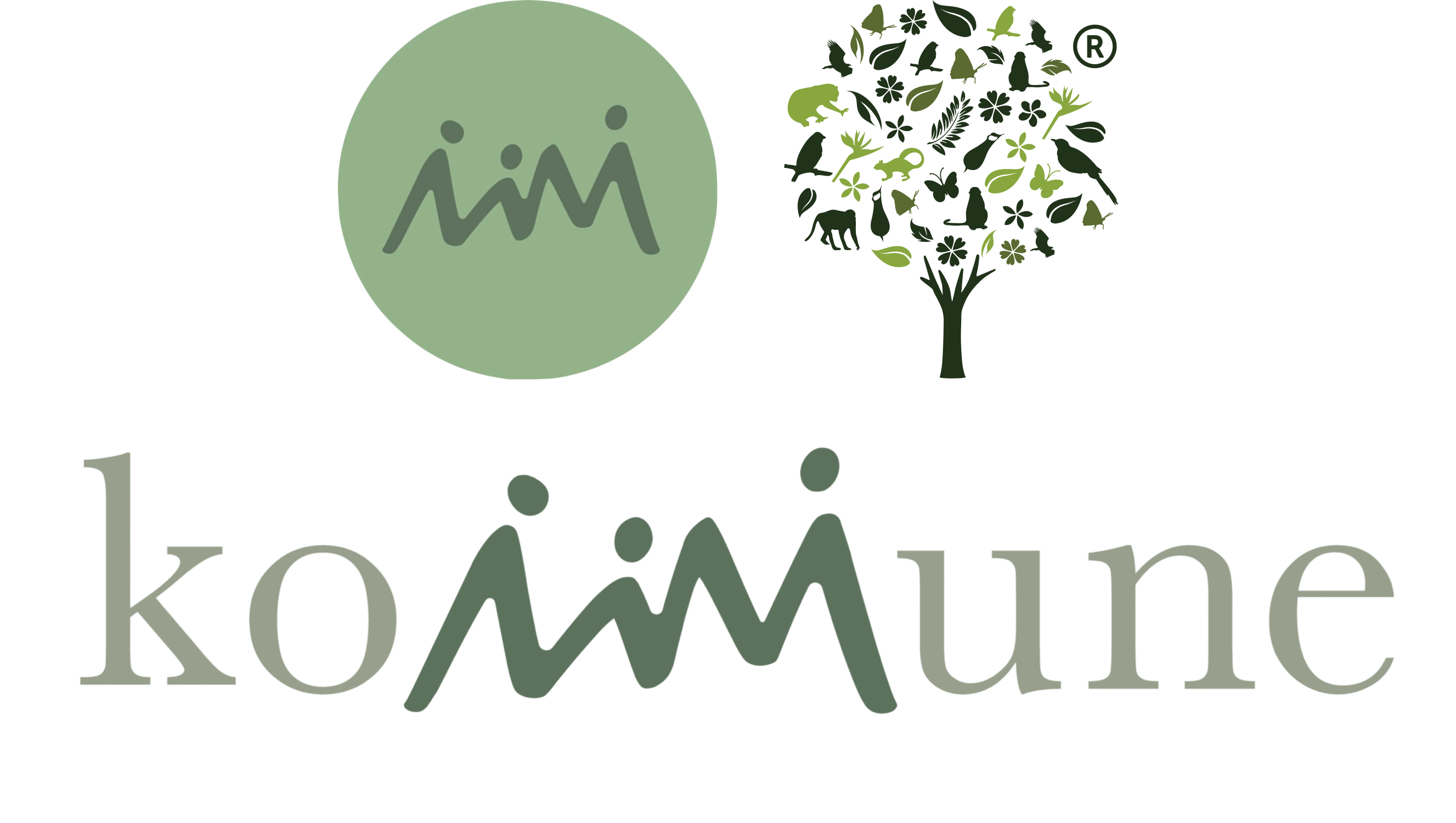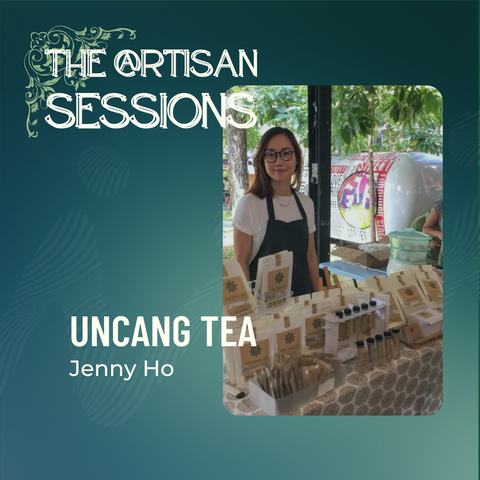It can't be denied that tea has many benefits for our health; which is why we're proud to feature our next artisan who is no stranger to botany and tea blending. You may have seen the products in our store or every tried it before. But if you haven't please do go check it out at kommune.store or if you're at our cafe in The Habitat Penang Hill, you can purchase it there as well.
Jenny is the founder of Uncang Tea; our Penang-made tea blender and tea aficionado. She's passionate about bringing Malaysian made products to the forefront of the world. Today, we have her on our session to get to the bottom of how this whole brand came to brew (no pun intended).
And over to our The Artisans Sessions #2: Uncang Tea.
KK: Hi Jenny! First off, do tell us a little bit about yourself and what you do.
UT: I used to travel for work around Asia Pacific region for about 10 years. I spent a lot of time in souvenir shops at tourist spots buying gifts for family and friends. Every time I travelled out of Malaysia to meet with business contacts, I’d bring a gift that represented Penang or Malaysia. Naturally, other than business, we’d also chat about Malaysia and, of course, Penang food. My gifts included such items as 3-in-1 Durian white coffee, Penang famous biscuits, marinated nutmeg and coconut candy. As they are professionally packed, I'd have no problems getting them onto flights and going through customs at each country.
Initially, I started a tea business because I wanted my creation to be brought back across the world by someone who visited Penang or other Malaysian destinations. The tea would be a topic for them to share with family and friends about their travels. There would certainly be a lot of stories to share and Uncang Tea would be a great starting point. Uncang is as local as tea can be and our ingredients are mostly locally sourced.

KK: And when did you figure out that your life and career would revolve around tea?
UT: Uncang Tea was created in April 2018. I used to work for a global corporation but they were not product-based. I was keen on having my own product and I’ve always been passionate about startups. As a budding entrepreneur, I wanted to create something new. As I was always interested in herbs, fruits and spices, naturally this gave life to Uncang Tea. I was very excited when I discovered that herbs for tea can be blended into different colours based on ingredients found locally. Upon sharing some blends I curated with a group of friends, they suggested that I package the blends as a unique representation of Penang and Malaysia. The rest, as they say, is history!
KK: What was the inspiration behind creating your brand Uncang Tea?
UT: My travelling experience made me realize that we spent endless hours wandering around different places in a foreign land especially, of course, tourist destinations. Wherever I went, I was always attracted by the art market because they were the places where I could quickly discover the cultural identity of the place. Art markets such as Hinbus Depot, Beijing 798 art district, Shanghai Tianzi Fang and many other such places represent a contemporary way of telling visitors the heritage of a country in a new modern way, especially through the creative eyes of young, local upcoming-artists.
The inspiration behind the Uncang Tea was my vision to create a beautiful gift that represents Penang in a modern contemporary way. I believe many traditional local products can go through a facelift in order to be accepted by younger generations and increase sales to foreign tourists. Uncang comes from a Malay word that means ‘sachet’ or ‘pouch’. In the traditional herb making process, a sachet or pouch is often used to produce the herbal tea by dipping the dried herbs into hot water. Today, the same term can be applied for teabags. So with the Uncang brand we can learn one Malay word and perhaps get to know a few Malaysian herbs.

KK: Is sustainability a part of your business and how has sustainability played a role in your personal life leading into your work?
UT: I believe in reducing the carbon footprint of all products. Personally, as a Pescatarian I don’t eat meat, including chicken and beef. This is not only as a way of staying healthy but because I know that meat-farming is ecologically damaging. That's from a consumer’s point of view. From the producer’s standpoint, wouldn’t it be better not to profit from a product that has a high carbon footprint, in spite of whatever the consumer demand is?
The reason to source for local ingredients is to avoid transporting them from overseas which increases the carbon footprint. The only exception is when the ingredients are not part Malaysian grown, such as lavender and certain other spices. We do set high priority in choosing locally grown ingredients. Carbon footprint is determined by the weight of the product and the resources sacrificed to produce the product. Resources sacrificed includes the amount of deforestation, energy spent drying the herbs and manpower involved in the agriculture process.
KK: And how do you deal with eco and ethical practices in your work?
UT: Environmental degradation is often caused by the lack of environmental and ethical concerns. There is a big challenge in maintaining the freshness of the goods and prolonging the shelf life in the most eco-friendly way. Zero waste is a wonderful concept but that is particularly challenging when dealing with perishable goods such as foods which must have a best-before date. The questions faced by businesses often involve the cost to the consumer, the lifespan when choosing packaging products and avoiding the use of preservatives in prolonging the product lifespan.
As a business we look at this as a triangular problem between protecting the environment, use of raw ingredients and profit margin. For example, if we choose a packaging material that is too biodegradable, we may end up wasting the raw ingredients in a very short time. When considering our packaging solutions we always try to strike this balance when confronting this triangular problem. A balanced decision indicates that we’ve made one that is ethical.

KK: What's your view on becoming an artisan and any advice to upcoming artisans?
UT: I am delighted to see anyone creating something new especially if they are a Penang humble start up. Penang is a good place to start up small businesses. I have advised some of my friends to start their own business. If you are employed full time, you can still do something you like as a part-time entrepreneur. Artisans can turn their hobbies or passions into businesses. As an entrepreneur there may be a lot of “what ifs” in our mind that can be replaced by “why not?”. If you never start, you’ll never discover where your ideas will take you.
KK: That's great advice! Did you have any hurdles starting out?
UT: The biggest hurdle as an artisan is my family's objection. Coming from a middle class family with my father as the sole breadwinner, the biggest hope my parents wish for all us children is to have a stable income job. So, understandably, my parents were not fully supportive when I decided to quit my well-paying job with a global company and go full time as an artisan. Apart from this familial objection, the second largest challenge will always be marketing. Coming up with any ideas or products is not too difficult, but to sell those ideas or products is a challenge. Often selling is harder than the creation of the product itself. The good news is that selling is a skill that can be learnt.
KK: We love your blended teas. Where do you get your sources of inspiration from?
UT: Rainbow colours were my original inspiration behind tea blending. Everyone knows the benefits of drinking herbal teas. We can almost see a beautiful blooming flower as we brew the tea and then, later, we can enjoy the delicious taste of this colorful beverage. That explains why our tagline is #interestingcupoftea. The art of tea can go well beyond taste and colour though as it easily extends to taking a brief time off from our busy day to just enjoy a simple cup of tea and to reconnect with our inner selves.

KK: Growing up, what in your personal life has influenced you to this journey of yours?
UT: I grew up in Sabah as an accidental Sabahan. ‘Accidental’ because both my parents are, in fact, from West Malaysia. Life in Sabah exposed me to the wonders of nature. Hiking through jungle, studying plants, being fascinated by its different fauna and, inevitably, running away from biting insects became part of life! Spending time with my mother whose hobby was planting edible plants and having a father who was in the palm oil industry, I became fascinated by botany.
KK: What do you love about what you do?
UT: I enjoy this journey that continually sprouts new ideas. Love is a strong word and sometimes it can change too. I will say I loved what I used to do in my corporate job. But the love towards having what is built out of nothing is much stronger. The day I created the Uncang Tea logo filled me with excitement. Although I did later change the logo, that day was a memorable one. There were rounds and rounds of tuning and printing and reprinting the logo in the design process. All just to make it better. This creativity and new ideas extended not only to the logo but the packaging design, the flavours of the tea and creating new tea-related products. I love designing and, especially, seeing an idea turn into a final product.
KK: What’s next in the plan for your business?
UT: This year I took a big step and had my packaging printed with barcoding. This allows me to move forward with new plans. I have envisioned expanding the business so that my tea can be sold to more outlets, including upmarket grocery stores. There were many steps required before I could do this. My aim is not to have Uncang tea available everywhere but to turn some of my “what ifs” into “why nots?”
Hope you enjoyed reading the thoughts from our artisan. Do look out for the next session soon!
Kommune Krew.

